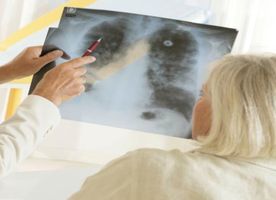Lung Cancer Treatment in Thailand
Search and Compare the Best Clinics and Doctors at the Lowest Prices for Lung Cancer Treatment in Thailand






Lung Cancer Treatment at Bangkok Hospital Phuket in Phuket, Thailand




Lung Cancer Treatment at Thonburi Hospital in Bangkok, Thailand





Lung Cancer Treatment at ImmuneCells21 in Bangkok, Thailand





Lung Cancer Treatment at Bumrungrad International Hospital in Bangkok, Thailand
Our partner clinics in are accredited by the following associations












































































































































No Time?
Tell us what you're looking for and we'll reach out to the top clinics all at once
WHY US?












































































































































No Time?
Tell us what you're looking for and we'll reach out to the top clinics all at once
How long should I stay in Thailand for a Lung Cancer Treatment Procedure?
The duration of stay in Thailand for lung cancer treatment greatly depends on the specific treatment plan prescribed by your doctor. If surgery is performed, a hospital stay of a few days to a week may be necessary, followed by a recovery period at home that can last several weeks.
Treatments like radiation therapy and chemotherapy are often done on an outpatient basis, but they require multiple sessions over weeks or even months. Therefore, depending on the complexity and stage of your lung cancer, you might need to stay in Thailand for several weeks to several months. Always consult with your healthcare provider to get a more personalized estimate.
What is the cost of Lung Cancer Treatment in Thailand?
The cost of Lung Cancer Treatment in Thailand can vary greatly based on several factors. These factors include the type and stage of lung cancer, the specific treatment plan, the hospital or medical center where you receive treatment, and the local cost of living. Surgery, chemotherapy, radiation therapy, targeted therapy, and immunotherapy can each have different costs, and you may need a combination of these treatments.
It's also important to consider additional costs, such as hospital stays, medications, consultation fees, follow-up care, and potential out-of-pocket expenses. Please consult a healthcare provider or a representative from your insurance company for the most accurate cost information.
What does a Lung Cancer Treatment Procedure Involve?
Lung Cancer Treatment in Thailand typically involves a multi-faceted approach tailored to the individual patient's needs. This course of treatment can include a combination of surgery, radiation therapy, chemotherapy, targeted therapy, and immunotherapy.
Surgery involves removing the tumor and some surrounding tissue to prevent the spread of the disease. Radiation therapy uses high-energy rays, like X-rays, to kill the cancer cells. Chemotherapy involves the use of drugs that kill cancer cells throughout the body and is often used when the disease has spread to other areas. Targeted therapy uses specialized drugs that specifically target cancer cells and can minimize damage to healthy cells. Immunotherapy, a newer field of cancer treatment, uses treatments that work with the immune system to fight cancer cells.
The exact treatment you receive will depend on the type and stage of your lung cancer, your overall health, and your personal preferences. Your healthcare team in Thailand will work closely with you to create a treatment plan to suit your needs.
What's the Recovery Time for Lung Cancer Treatment Procedures in Thailand?
The recovery time following Lung Cancer Treatment is highly diverse for each patient and depends on numerous factors such as type of treatment, stage of lung cancer, and the patient's overall health. If a patient undergoes surgery, recovery may take several weeks to months, with longer periods if the surgery is necessary or complications arise.
Chemotherapy and radiation treatments often bring about side effects, including fatigue, nausea, and a weakened immune system, which can prolong the recovery period. Patients might need weeks or even months after the completion of these treatments before they start to feel like themselves again. Other therapies, such as targeted therapy and immunotherapy, also can cause side effects that necessitate additional recovery time. Therefore, it's essential to have regular follow-ups with medical professionals as part of the recovery process.
How should I prepare for the Lung Cancer Treatment in Thailand?
Preparing for Lung Cancer Treatment involves physical, emotional, and logistical considerations. Prior to beginning treatment, undergo comprehensive health evaluations to determine your overall level of wellness, as your overall health can impact your ability to withstand cancer treatments. It can be beneficial to adopt a healthy lifestyle, including a balanced diet and regular exercise, to boost your immune system. Also, inform your healthcare provider about any medications or supplements you are taking to avoid any potential complications.
Psychologically, it might be helpful to participate in counseling or support groups as dealing with a cancer diagnosis can be emotionally challenging. In terms of logistics, discuss the detailed treatment plan extensively with the medical team to understand what to expect. Arrange your schedule accordingly, consider who can accompany you to your appointments, and plan for any needed post-treatment care at home. Understand your insurance coverage and identify any financial resources that may be available to help you with costs. The better prepared you are, the smoother your treatment will be.
What sort of Aftercare is Required for Lung Cancer Treatment Procedures in Thailand?
Aftercare following Lung Cancer Treatment primarily includes regular follow-up appointments with your healthcare provider. These appointments may include physical examinations, blood tests, and imaging studies such as CT scans, to monitor for signs of recurrence or spread of the disease. You may also need to have additional therapies, such as physical rehabilitation, nutritional counselling, and psychological support, to help manage any lingering side effects from your treatment.
Aftercare also includes adopting healthy lifestyle habits, such as maintaining a balanced diet, regular exercise, and avoiding tobacco smoke exposure, to support your overall well-being and immune system. It's also important to monitor for and promptly report any new symptoms or changes in your health to your healthcare provider.
What's the Success Rate of Lung Cancer Treatment Procedures in Thailand?
The success rate for Lung Cancer Treatment varies significantly depending on the type and stage of the disease and the patient's overall health. Early-stage lung cancers, if treated appropriately with surgery or radiation therapy, can often be cured. For more advanced stages of lung cancer, the goal of treatment may be to control the disease and alleviate symptoms.
For example, according to the American Cancer Society, the 5-year survival rate for stage I non-small cell lung cancer is about 60-93%, but for stage IV it drops to 0-10%. The success of targeted therapy and immunotherapy can be quite high, but these treatments are typically used for certain types of lung cancer. It's crucial to discuss with your healthcare provider about the expected outcomes and success rates specific to your situation.
What are the benefits of the Lung Cancer Treatment in Thailand?
The primary benefit of Lung Cancer Treatment is to effectively control the disease, by stopping or slowing down the growth of cancerous cells. In cases of early-stage lung cancer, treatment can potentially cure the disease. Even in more advanced stages, treatment can help to prolong life and significantly improve quality of life by reducing symptoms such as pain, shortness of breath, and fatigue.
Additionally, novel treatments like targeted therapy and immunotherapy have shown promise in enhancing survival rates, and often have fewer side effects compared to traditional chemotherapy and radiation. Therefore, they can lead to improved quality of life during treatment.
Are there Alternatives to Lung Cancer Treatment Procedures in Thailand?
Alternative treatments for Lung Cancer Treatment depend on the type, stage, the patient's health status, and personal choice. In early-stage cancer, radiation therapy can be an alternative to surgery for patients who can't undergo surgery due to poor health. Similarly, in patients unfit for chemotherapy, targeted therapy or immunotherapy might be used.
It should be noted that while some patients may consider alternative medicine approaches (such as herbs, supplements, and special diets) instead of conventional lung cancer treatments, these have not been proven to cure lung cancer in rigorous scientific studies. Therefore, they are usually not recommended as the primary treatment, but they might be considered complementary therapies to help manage the side effects of conventional treatment.
What should you expect before and after the Procedure?
Before the procedure, expect to have several medical tests and consultations done to ascertain your diagnosis and the best course of treatment. You might have to make certain lifestyle adjustments, such as quitting smoking and optimizing your nutrition, to enhance your body's capacity to handle the treatment.
After the procedure, expect a period of recovery, which varies according to the type of treatment received. There might be side effects from the treatment itself, like fatigue, pain, and nausea. Over time, most side effects will improve. You will also have regular follow-up appointments to monitor your progress and to immediately address any signs of recurrence.
Are there any risks or complications associated with the Lung Cancer Treatment in Thailand?
Yes, Lung Cancer Treatment is associated with several risks and complications. Surgery carries risks including infection, bleeding, and complications from general anesthesia. Long-term complications might include changes in lung function.
Treatments like chemotherapy and radiation therapy can also cause side effects including fatigue, nausea, hair loss, and an increased risk of infection due to their effects on the immune system. Targeted therapies and immunotherapy can cause various side effects, like skin problems and effects on normal organs. It's important to discuss these potential risks and complications with your doctor and report any side effects promptly so that they can be managed effectively.
This information has been accurately sourced and verified by a medical professional for its accuracy, however, we strongly recommend you to consult with your doctor before pursuing medical procedures overseas.


